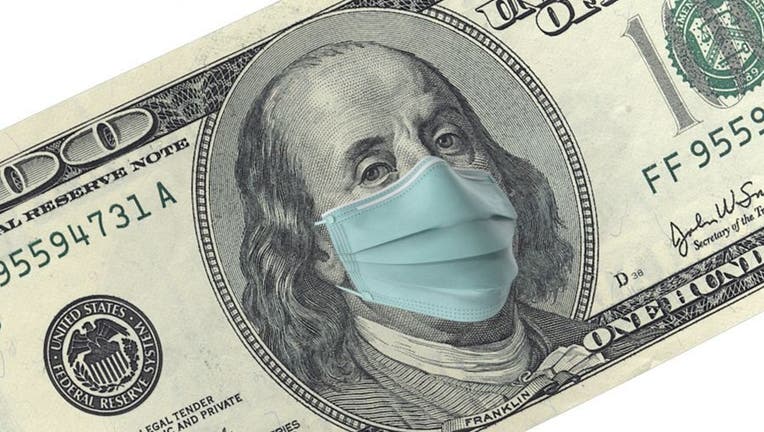3 ways to get more money for college amid coronavirus

Coronavirus has many students wondering how they’ll pay for school. These options can help. (iStock)
The COVID-19 pandemic has caused economic hardship across the country. And for college students, it’s been particularly challenging.
Many have lost their on-campus jobs and work-study assignments or even found themselves without housing or food due to campus shutdowns. For those whose parents have lost income due to the outbreak as well, the outlook is even bleaker — and paying for tuition and other college costs is likely more difficult than ever.
Fortunately, there are a few options that might alleviate the burden — both for current costs and those associated with the next semester. Are you pursuing a higher degree during the COVID-19 pandemic? Here are some options that can help.
Private student loans
If emergency aid isn’t available (or you’re not eligible for it), you can also look to private student loans. These typically require a cosigner and decent credit, but they can offer loan amounts up to $350,000 in some cases.
The process for applying and receiving your funding is usually very quick, too, which makes them a great option if you need to cover costs fast. To see if you're eligible for a private student loan and to determine your rate — without impacting your credit score — fill out some basic information online.
THIS IS WHY STUDENT LOAN REFINANCING RATES ARE GOING DOWN
Note: Private loans are not ideal if you haven’t maxed out your federal loan options yet. Federal loans typically come with lower interest rates and more favorable repayment options, so make sure you fill out your FAFSA and apply for those first. And keep in mind that the CARES Act has suspended federal loan payments until October, so you won’t need to make a payment for some time.
But if you're still certain a private loan makes the most sense for your financial situation, don't forget to shop around. Interest rates and terms are different at each lender, so getting several quotes can help ensure the best deal possible. Use an online tool like Credible to streamline the rate-shopping process.
To learn more about private student loans and how they can help, visit Credible's website today.
The Higher Education Emergency Relief Fund
The Coronavirus Aid, Relief, and Economic Security (CARES) Act has a number of provisions designed to help students struggling due to the outbreak. For one, there’s the Higher Education Emergency Relief Fund that the act created. This offers around $14 billion in funding to colleges across the country, 50 percent of which is required to go straight to students.
“The aid is intended for use towards anything included in the cost of attendance of a school that has suspended on-campus operations,” said Leslie Tayne, founder of debt relief-focused Tayne Law Group. “The cost of attendance includes every expense associated with attending school, including tuition, room and board, dining, books, supplies, transportation, and in some cases personal technology.”
Because the funds are given directly to universities, the process for qualifying for these funds — and applying for them — can vary greatly.
3 THINGS TO KNOW BEFORE BORROWING FOR COLLEGE
Here’s how Trina Patel, financial advice manager at personal finance app Albert, explains it: “Some institutions will require students to apply for this directly through their school, while others may distribute to pre-selected students. Additionally, each school will decide who will qualify and how much aid will be provided.”
According to Tayne, colleges have been directed to distribute the relief funds as quickly as possible, but technically have up to one year from the date of funding to do so. As such, some universities are actually holding back some of the aid to help students with summer and fall costs (the University of Arizona is doing this, for example).
Other CARES Act and on-campus aid
There are other provisions of the CARES Act that can also help aid students facing financial hardship.
Here are just a few options:
Emergency grants - The CARES Act allows colleges to repurpose any leftover Federal Supplemental Education Opportunity Grant (FSEOG) funding and use it toward emergency student grants. Schools can also go above traditional FSEOG limits during this time.
Work-study - The law also lets colleges continue to make federal work student payments, even if the student is no longer able to complete their duties (due to campus shutdowns, etc.).
Pell grants - If you received a Pell grant to help with your spring semester costs but had to withdraw due to the outbreak, you no longer have to return the unused portion under the CARES Act. You can use these funds for the following semester.
HOW TO LOWER YOUR PRIVATE STUDENT LOAN PAYMENTS
You may also want to repurpose any refunds you receive from the spring semester, too. This might include refunds for room, board, tuition, or even lab costs.

